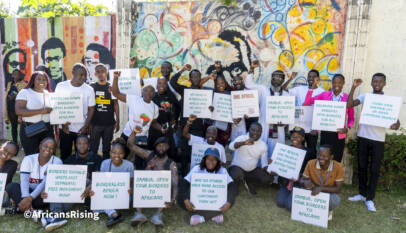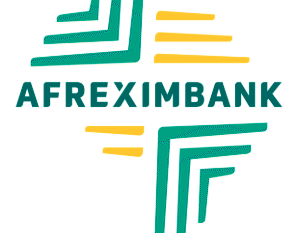Absa’s digital transformation journey with SAP
How the banking group transformed their operations by replacing legacy systems with cloud, AI-ready SAP technologies.

JOHANNESBURG, South Africa, July 14th, 2025-/African Media Agency(AMA)/- When financial services group Absa began its ERP transformation journey more than a decade ago, the goal was ambitious: build a unified digital platform that could support operations across multiple African markets, streamline finance and procurement processes, and drive long-term business agility.
But large-scale transformation is rarely linear.
“The first phase of our transformation started in 2011, a few years after the Barclays acquisition,” says Annelie Hurter, Head: FC Technology Enablement and Finance Business Sponsor for the SAP rollout at Absa. “The goal was to move all African entities onto a single Barclays platform. However, this platform was unsuitable for retail banking in Africa due to limitations in handling master data, general ledger accounts, and granular core banking functions.”
Absa initiated ‘Project Owari’, named after a popular board game played in various parts of Africa that dates back to 700AD. Project Owari would see Absa’s operations in each country transformed using the Barclays SAP platform. Tanzania would be the first country to undergo the transformation, but the experience caused the implementation team to pause and reassess.
“We put the project on hold for seven months to determine the best course of action after realising the limitations of the Barclays platform,” says Hurter. “We engaged in extensive consultations, all the way to the CEO’s desk, and ultimately decided to be slightly less ambitious. We chose to test our rollout on a smaller market to ensure we had a viable blueprint for the rest of the group.”
Zambia was chosen as the first country to go live with a hybrid of the local South Africa SAP ECC6 platform and SAP Supplier Relationship Management solution in 2016, followed by similar implementations in Mauritius and Seychelles (2016), Ghana and Tanzania (2017-2018), Botswana (2018) and Uganda (2019). This period also marked the separation with Barclays in 2017, and the news that SAP ECC6 is approaching its end-of-life following SAP’s shift to the more powerful, cloud-ready SAP S/4HANA.
“We implemented SAP S/4HANA with a focus on clean core principles: limited customisation, standardised processes, and a deliberate move away from legacy workarounds. Strong governance kept us aligned and prevented scope creep. Where necessary, we split the implementation into phases, starting with cost accounting, followed by the primary ledger and group reporting.”
Hurter believes the deliberate approach to reducing complexity, support from leadership in each country and a boots-on-the-ground approach to support ultimately made the difference and ensured the project rolled out successfully. “A significant portion of this work was done during the pandemic, which meant we had to rely on remote teams. This added an immensely challenging dimension to the project.”
While the Kenyan rollout was completed mostly remotely during the pandemic, the South African go-live highlighted the need for flexibility and realism. Initial plans to launch the ledger, group reporting, and procurement simultaneously were too complex. Instead, Absa split the rollout and adopted Coupa as its procurement solution, introducing stricter spend controls and digitising mandates.
“With improved data models, we are now able to respond faster to regulatory requirements, enhance external disclosures, and prepare for further innovation,” says Hurter. “This includes the potential deployment of SAP Financial Products Subledger and business AI in future. This journey has taken commitment, focus, effort and dedication, but remains worth it as we chart a course toward sustainable and scalable growth.”
Nazia Pillay, Interim Managing Director for Southern Africa at SAP, says: “Digital transformation in the banking sector is immensely complex, with companies perpetually balancing the need for business continuity and regulatory compliance with essential technology deployments to ensure they continue to deliver to customer needs. Absa has overcome every challenge to transform its core banking processes and lay a solid foundation for further tech-led innovation. We are proud to continue to support Absa as it implements its exciting vision for the future of banking on the African continent.”
Distributed by African Media Agency (AMA) on behalf of SAP Africa.
Visit the SAP News Center. Follow SAP on Twitter at @SAPNews.
About Absa Group Limited
Absa Group Limited (‘Absa Group’) is listed on the Johannesburg Stock Exchange and is one of Africa’s largest diversified financial services groups.
Absa Group offers an integrated set of products and services across personal and business banking, corporate and investment banking, wealth and investment management and insurance.
Absa Group owns majority stakes in banks in Botswana, Ghana, Kenya, Mauritius, Mozambique, Seychelles, South Africa, Tanzania (Absa Bank Tanzania and National Bank of Commerce), Uganda and Zambia and has insurance operations in Kenya and South Africa. Absa also has representative offices in the People’s Republic of China, Namibia, Nigeria and the United States, as well as securities entities in the United Kingdom and the United States, along with technology support colleagues in the Czech Republic.
For further information about Absa Group Limited, visit www.absa.africa
About SAP
As a global leader in enterprise applications and business AI, SAP (NYSE:SAP) stands at the nexus of business and technology. For over 50 years, organizations have trusted SAP to bring out their best by uniting business-critical operations spanning finance, procurement, HR, supply chain, and customer experience. For more information, visit www.sap.com.
Note to editors:
To preview and download broadcast-standard stock footage and press photos digitally, please visit www.sap.com/photos. On this platform, you can find high resolution material for your media channels.
For customers interested in learning more about SAP products:
Global Customer Center: +49 180 534-34-24
United States Only: 1 (800) 872-1SAP (1-800-872-1727)
For more information, press only:
SAP Head of Communications Africa, James Wilson at
ByDesign Communications, Palesa Mokitle, at
The post Absa’s digital transformation journey with SAP appeared first on African Media Agency.















